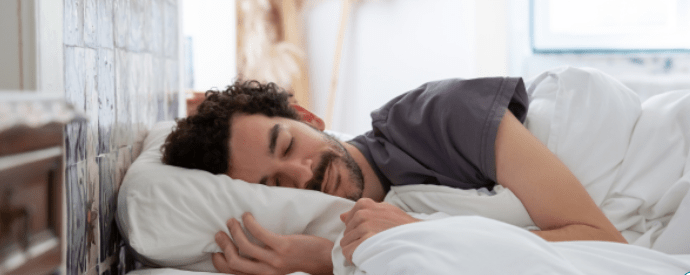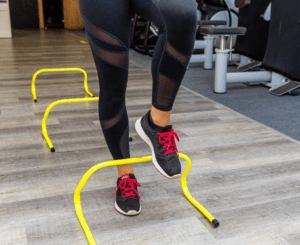Introduction:
At Tops:Health we aim to empower individuals like yourselves with valuable information and insights to support you through your journey of recovery and to a happier and healthier life. In this blog, we will explore the vital role that sleep plays in the healing process and shed light on how poor sleep can negatively impact your recovery and general well-being.
The Importance of Quality Sleep:
Sleep is a fundamental aspect of human life that often gets overlooked when it comes to recovery. However, it is during sleep that your body carries out essential repair and rejuvenation processes. Adequate, uninterrupted sleep is crucial for healing, as it allows your body to regenerate cells, restore energy levels, and consolidate memories. Quality sleep positively impacts your physical, mental, and emotional well-being, all of which are key factors in your recovery journey.
The Role of Sleep in Recovery:
- Tissue Repair and Growth: During deep sleep, the body releases growth hormone, which promotes tissue repair and growth. Another hormone called melatonin is also released. Melatonin acts to regulate sleep and your circadian rhythm, it is the opposite of the ‘wake and alert’ hormone cortisol which increases with high levels of stress. Melatonin also acts an antioxidant, helping to protect cells from damage caused by free radicals, and plays a role in hormone regulation and has been associated with various physiological processes, such as immune function and blood pressure regulation. The actions of growth hormone and melatonin are vital for health and recovery, as they aid the healing damaged tissues, reducing inflammation, and accelerating the recovery process.
- Pain Reduction: Lack of sleep can amplify pain perception, making it more challenging to manage discomfort during your rehabilitation. By prioritising quality sleep, you give your body the chance to produce natural pain-relieving substances and reduce the intensity of pain signals.
- Muscular Recovery: Physical activity and physiotherapy sessions put stress on your muscles. Sleep provides a valuable opportunity for muscle relaxation, repair, and regeneration. It aids in replenishing glycogen stores, reducing muscle fatigue, and promoting optimal muscle function.
- Cognitive Function and Mood: Sleep plays a crucial role in cognitive functions such as memory, attention, and decision-making. By getting sufficient sleep, you enhance your ability to focus, absorb new information, and apply it in your daily life. A good night’s sleep also helps enhance your mood, energy levels and motivation to be more active and eat healthier foods, helping you to stick to healthy habits.
The Negative Impact of Poor Sleep on Recovery:
- Slowed Healing: Inadequate or poor-quality sleep can slow down the healing process, leading to prolonged recovery periods. It hampers the production of growth hormone, impairs tissue regeneration, and weakens your immune system, making you more susceptible to infections.
- Increased Pain Sensitivity: Sleep deprivation amplifies your perception of pain, making it more challenging to manage discomfort and hindering your progress in physiotherapy sessions. It creates a vicious cycle where pain disturbs sleep, and lack of sleep intensifies pain, creating a detrimental cycle to your recovery.
- Impaired Mental Health: Poor sleep affects your emotional well-being and mental health. It can lead to increased stress, anxiety, and depression, which can impede your motivation, hinder compliance with your physiotherapy, healthy routines and diminish your overall recovery outcomes.
Tips for Better Sleep:
- Establish a Routine: Set a consistent sleep schedule, going to bed and waking up at the same time each day, even on weekends. This helps regulate your body’s internal clock and promotes better sleep.
- Create a Relaxing Environment: Ensure your sleep environment is quiet, dark, and at a comfortable temperature. Use comfortable bedding and invest in a supportive mattress and pillows to optimize your sleep quality.
- Limit Stimulants: Avoid consuming caffeine, nicotine, and alcohol close to bedtime, as they can disrupt your sleep patterns. Instead, opt for a soothing bedtime routine that includes activities like reading, taking a warm bath, or practicing relaxation techniques.
- Prioritize Sleep Hygiene: Engage in regular physical activity during the day, avoid heavy meals close to bedtime, and limit exposure to electronic devices before sleep. These practices promote better sleep quality and help.
Conclusion:We hope this blog has given you some useful insights into the healing powers of sleep. By understanding the benefits of quality sleep and recognising the detrimental effects of poor sleep, you can take proactive steps to optimise your rest and enhance your healing process. Prioritising adequate sleep can significantly impact your physiotherapy outcomes and health by promoting tissue repair, reducing pain sensitivity, supporting muscular recovery, and enhancing cognitive function. Embrace the power of sleep and unlock its potential to facilitate your journey towards a healthier, stronger, and more vibrant self.
Sleep well, heal well, and regain control of your recovery. Sweet dreams!



